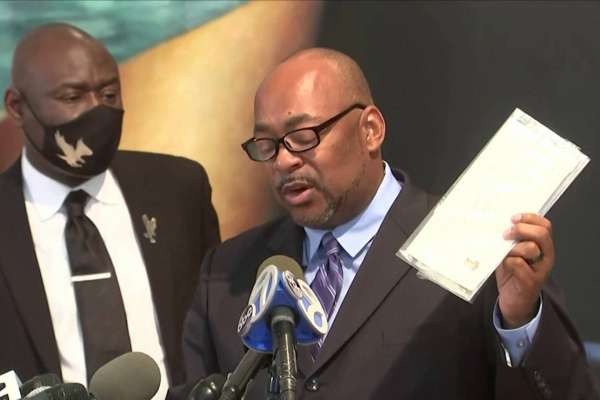Legal experts state that the charges against Hunter Biden are infrequently brought. The charges include allegations of money laundering and failure to report foreign income on his tax returns. Despite..
06/21/23 • 3,562 Views
Legal experts say the charges against Hunter Biden are rarely brought
The federal statute making it unlawful for a drug addict to possess a gun is facing court challenges. The misdemeanor tax charges Biden faces also rarely result in jail time.
WASHINGTON — The charges brought against President Joe Biden’s son Hunter Biden are rarely prosecuted, legal experts say.
Under a plea deal reached with the U.S. Attorney's Office for the District of Delaware — an office headed by Donald Trump appointee David Weiss — Hunter Biden will plead guilty to two misdemeanor charges of failing to pay taxes, which he later reimbursed. Biden also faces a felony gun charge — possession of a firearm by a person who is an “unlawful user of or addicted to any controlled substance” — but it is likely to be dismissed if he meets certain conditions under the plea agreement, according to court documents.
The federal gun charge, which makes it unlawful for a drug addict to possess a weapon, is a rarely used statute that is facing legal challenges and has recently been used as a catch-all charge against white supremacists.
Like the gun charge, the tax charges are rarely brought against first-time offenders and even more rarely result in jail time, Andrew Weissmann, a former FBI general counsel and News contributor, tweeted Tuesday. "This is if anything harsh, not lenient," he wrote.
Former federal prosecutor Renato Mariotti agreed. "It insults the intelligence of the American people to compare misdemeanor tax charges to a scheme to steal Top Secret documents and obstruct justice when the government asked for them back," he tweeted, comparing the charges against Hunter Biden to the recent federal indictment against former President Donald Trump. "If anything, Hunter Biden was treated harshly — those crimes are rarely charged."
The gun charge itself is under legal threat. A federal appeals court ruled in June that the government cannot ban those convicted of nonviolent crimes from possessing a weapon, and a federal court in Texas recently ruled — following a major Supreme Court case last year that expanded gun rights — that the ban on drug users possessing weapons violates the Second Amendment.
The charge, when brought, has often been used in high-profile cases where the underlying conduct doesn't violate any obvious federal criminal statute. Last week, the mother of a 6-year-old boy who shot his teacher in Newport News, Virginia, pleaded guilty to the charge — possessing a firearm while using marijuana — along with a charge of making a false statement.
The charge has resulted in serious prison time in other cases. A 23-year-old from Waterloo, Iowa, was recently sentenced to nearly five years in federal prison for possession as a drug user, while another 23-year-old in Lincoln, Nebraska, received three years in federal prison on the charge. Other sentences have not been as harsh: A man arrested during a burglary call in Vermont in May 2022 received a sentence of time served in March 2023. (There are undoubtedly other recent cases; but those that resulted in nonsubstantial sentences are also less likely to be mentioned in press releases issued by U.S. Attorney's Offices.)
Recommended
Capitol riotOath Keepers lawyer's trial delayed for competency treatment
The charge has also recently been used against white supremacists when their conduct did not provide an obvious violation of any other criminal statute, including against a white supremacist who was arrested in D.C. and found with a stash of weapons after his brother died by suicide. In that case, a federal public defender who had been working for 30 years said he “never had a case in which the government went forward" with the addict-in-possession charge. A judge concurred that the charge was unusual. The white supremacist was ultimately sentenced to time served after less than a year behind bars.
Chuck Rosenberg, a former top federal prosecutor and acting administrator of the U.S. Drug Enforcement Administration and a current noted that the addict-in-possession charge is used "sparingly," but said that did not mean it was used improperly in Hunter Biden's case, as each case needed to be evaluated on the individual evidence.
Paul Butler, a former federal prosecutor said on Tuesday that the deal Hunter Biden reached was a decent outcome for the president's son, but not the "sweetheart deal" that Trump and his allies have made it out to be.
While the plea agreement spells out that prosecutors will recommend a probationary sentence, the federal judge who ultimately sentences Hunter Biden is not bound to that agreement and could ultimately decide that the charge warrants incarceration. Court dates have not yet been set in the case.







